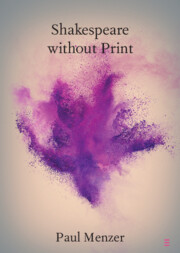Refine search
Actions for selected content:
1 results

Shakespeare without Print
-
- Published online:
- 16 June 2023
- Print publication:
- 13 July 2023
-
- Element
- Export citation
